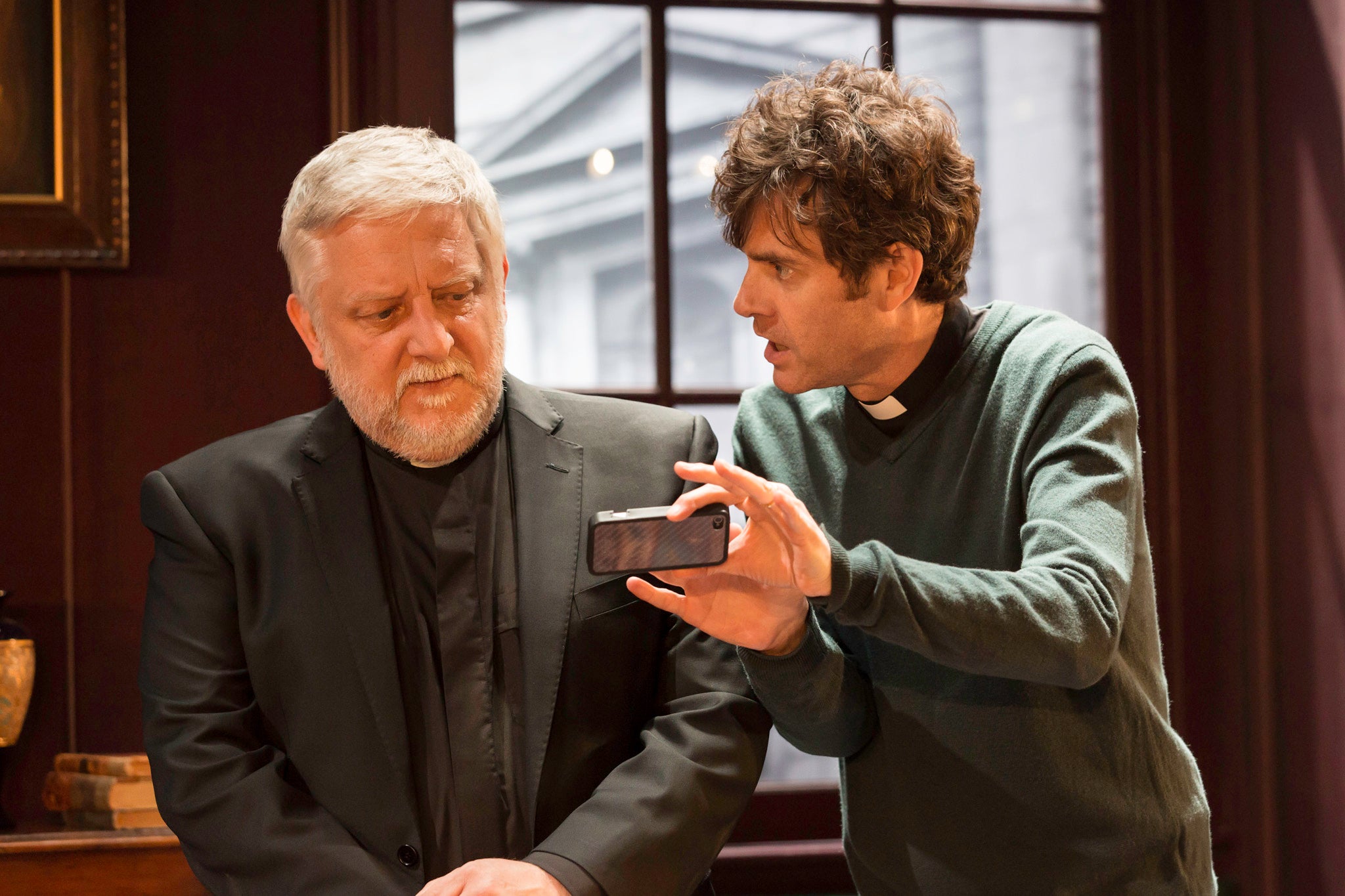Temple, Donmar Warehouse, review: Simon Russell Beale plays a brilliantly beleaguered Dean in Occupy drama
With impeccable direction by Howard Davies

Your support helps us to tell the story
From reproductive rights to climate change to Big Tech, The Independent is on the ground when the story is developing. Whether it's investigating the financials of Elon Musk's pro-Trump PAC or producing our latest documentary, 'The A Word', which shines a light on the American women fighting for reproductive rights, we know how important it is to parse out the facts from the messaging.
At such a critical moment in US history, we need reporters on the ground. Your donation allows us to keep sending journalists to speak to both sides of the story.
The Independent is trusted by Americans across the entire political spectrum. And unlike many other quality news outlets, we choose not to lock Americans out of our reporting and analysis with paywalls. We believe quality journalism should be available to everyone, paid for by those who can afford it.
Your support makes all the difference.The tall sash windows of the panelled room afford an imposing view of St Paul's dome. Distant sounds of the chanting and cheering demonstrators waft up. It's October 2011 and Occupy London, having been barred by the police from protesting at the Stock Exchange, have set up camp outside the Cathedral. The irony that they never meant to be there in the first place rubs salt in the wounds of the beleaguered Dean, brilliantly played here by Simon Russell Beale.
The Dean has already been fiercely attacked for closing (on health and safety grounds) a building that stayed open right through the Blitz. His agonising dilemmas – and the intractability of the problems he faced – are explored with keen insight, dry wit and an attractive sense of the absurd in Steve Waters' engrossing play, described as “an imagined version of real events” and informed by interviews with the actual participants.
Impeccably directed by Howard Davies, the continuous 90-minute drama follows the Dean in the Chapter House through the critical morning of October 28th as he prepares to reopen the Cathedral with a celebration of Eucharist and a sermon and then to hold a press conference. The eyes of the world are upon him. A visit from a sleek, hard-boiled City lawyer (Shereen Martin) brings home the massive pressure he's under to collude with an injunction to evict “this scruffy, illiterate and unsightly sit-in”.
Paul Higgins' left-wing Canon (fierce passion flecked with right-on self-regard) appals him by pre-emptively tweeting to the world his decision to resign because of the possibility of “violence in the name of the Church”. Support of a subtly undermining kind is offered by Malcolm Sinclair's hilariously supercilious Bishop of London whose main interest is appearance-management, arguing for a new PR initiative that will outflank the cynics and the wreckers by “some defining change”. Either that, or a re-think of the Dean's position.
Portraits of his illustrious predecessors surround him on the walls and Beale's performance – which delectably brings out the waspish humour and old-style pedantry of a man out of tune with the modern world (“the Religious Affairs Correspondent for Sky? Can such a person even exist?) – brings a Shakespearean depth to the vacillating self-doubt that's inextricably bound up with his decency and to his perhaps self-fulfilling fear that he will be “the first Dean to close the building; the first to walk away in post”.
He exquisitely handles the shifting mix of comic irritation and discreet kindliness towards Rebecca Humphries' newly installed, slightly chaotic, but frequently shrewd young PA and towards Anna Calder-Marshall's splendidly redoubtable veteran Virger and the moments of tearful implosion are quietly devastating.
“Was it ever our choice to be the parish church of high finance?” asks the Dean who points out that St Paul's has been there for 1400 years “before capitalism itself”. But whether the Cathedral likes it or not, it now is and the tensions and challenges to conscience that arise from that incongruity are powerfully addressed, with no reaching for easy answers, in the best play about the Church of England since David Hare's Racing Demon.
To July 24; 0844 871 7624
Join our commenting forum
Join thought-provoking conversations, follow other Independent readers and see their replies
Comments